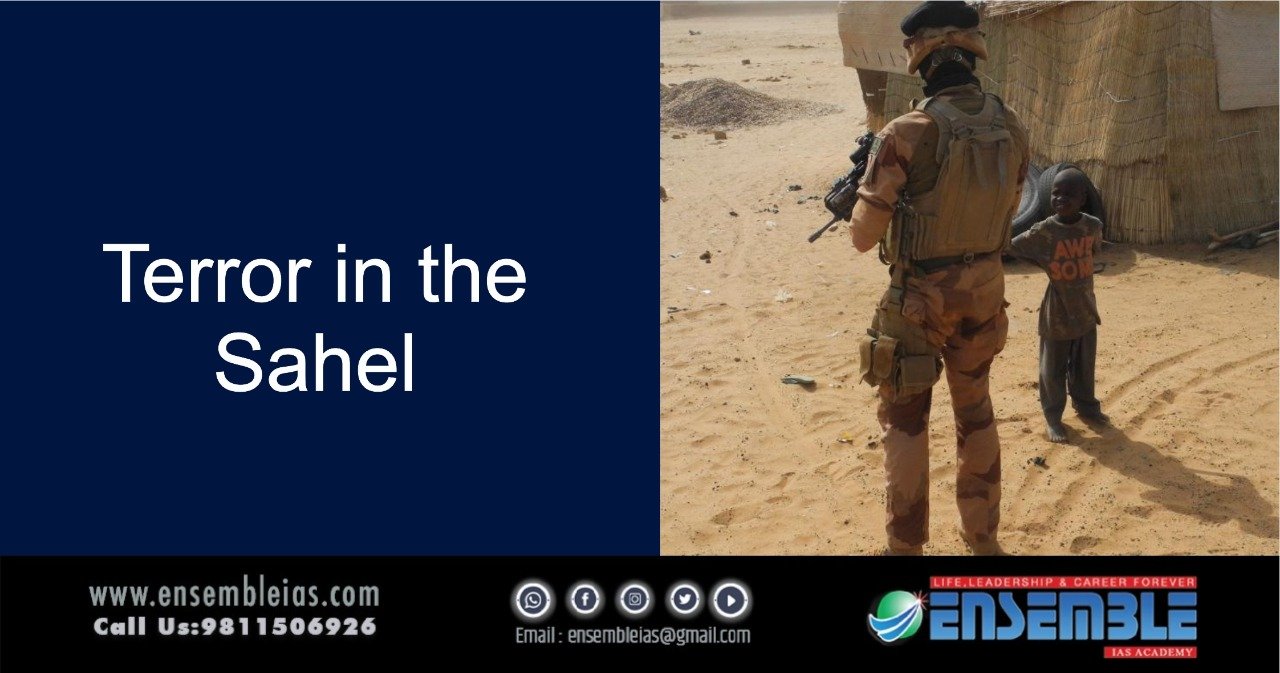Terror in the Sahel: On growing Islamist violence in Africa
To buy our online courses: Click Here
Terror in the Sahel: On growing Islamist violence in Africa: The massacre of at least 160 people in a border village in Burkina Faso over the weekend is a grim reminder of the threat the Sahel region faces from Islamist terrorism. Nobody has claimed responsibility, but Burkinabe authorities have named the Islamic State in the Greater Sahara (ISGS), which has carried out hundreds of terror strikes in recent years. The security situation in Burkina Faso, which saw its first major Islamist terrorist attack in 2015, has deteriorated steadily, especially along the borders with Niger and Mali. This has been the case with much of the Sahel region, a 5,900-km-long semi-arid territory. It has seen terrorist groups expanding their networks and stepping up attacks on civilians and soldiers. The Burkina Faso attack occurred after 137 people were killed by jihadists in Niger, in March. In Nigeria, Islamists control swathes of territories and have carried out abductions and attacks, including gunning down 27 people in a village on Sunday. Mali has been fighting terror groups since 2013.
Four main terror outfits operate in the region — the ISGS, the Islamic State West Africa Province (ISWAP), the Jama’at Nasr al-Islam wal Muslimin, the local al-Qaeda branch in Mali, and Boko Haram. Of these, the ISGS and Jama’at Nasr are reportedly in alliance to expand their influence in the Burkina-Mali-Niger border region, where they shoot down anyone who does not declare their loyalty to the jihadists. Boko Haram and the ISWAP are fighting each other but control territories in northeastern Nigeria. France has deployed troops in the region for counter-insurgency operations and is helped by the U.S., which has a drone base in Niger. The regime change policies of the U.S. and France are partly to be blamed for the problems the Sahel countries are facing today. When a NATO invasion removed Muammar Gaddafi from power in Libya in 2011, the region lost a stable bulwark against militias and jihadists. Libya, having fallen into anarchy and civil war, became a jihadist breeding ground. When trouble spread to Mali, France made a military intervention in 2013. But it did not defeat the insurgency, which spread beyond Mali’s borders. Now, jihadists find safe havens in the lawless deserts of the Sahel. When the IS-militant infrastructure was destroyed in Iraq and Syria, their foot soldiers fled to Africa, regrouping themselves in the region. The recent attacks should serve as a warning to all stakeholders. Major global powers, which worked together with regional players to defeat the IS in West Asia, should not stay away from the growing threat from Africa. They should, along with the UN, help the Sahel countries build capacity and institutions, offer stable governance and adopt sustainable counter-insurgency strategies.
Also Read: Also Read: Making peace with nature: A decade of protecting and reviving the ecosystem will help India in various ways




